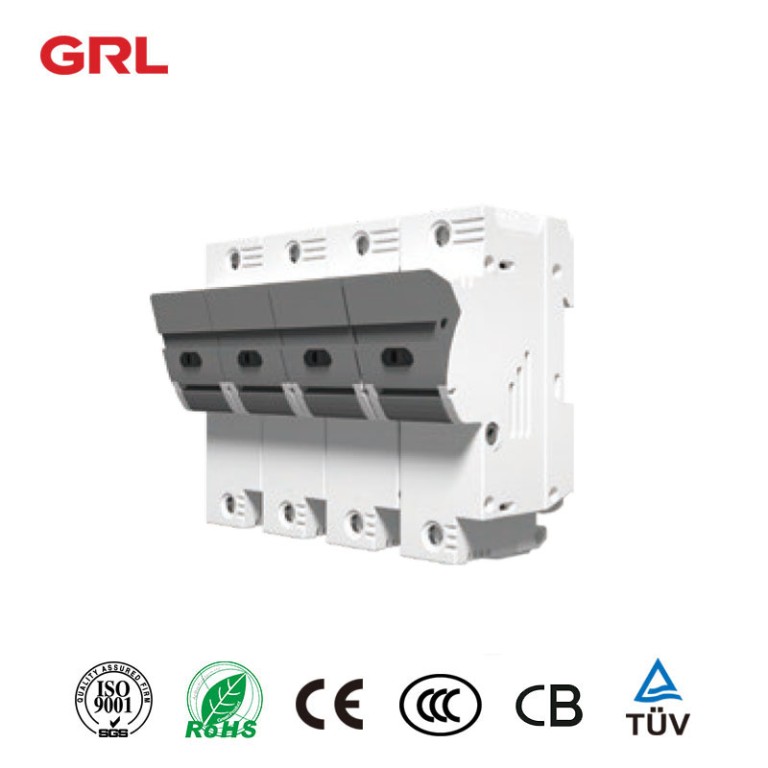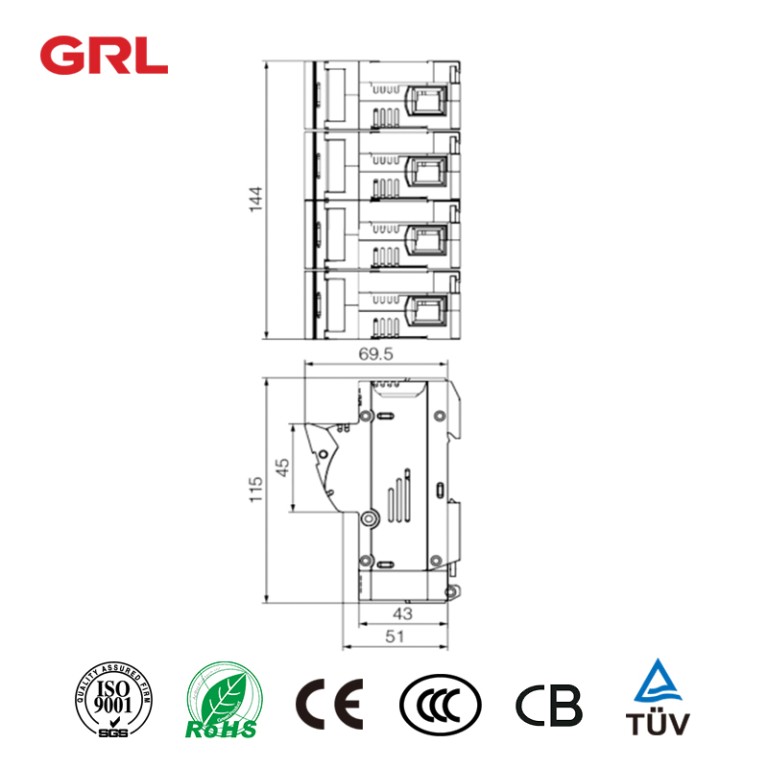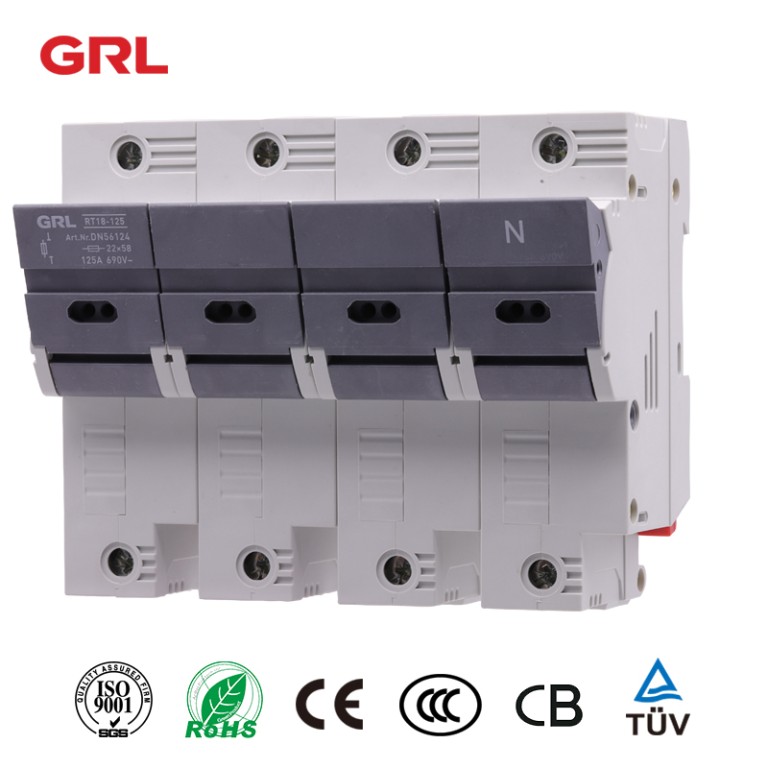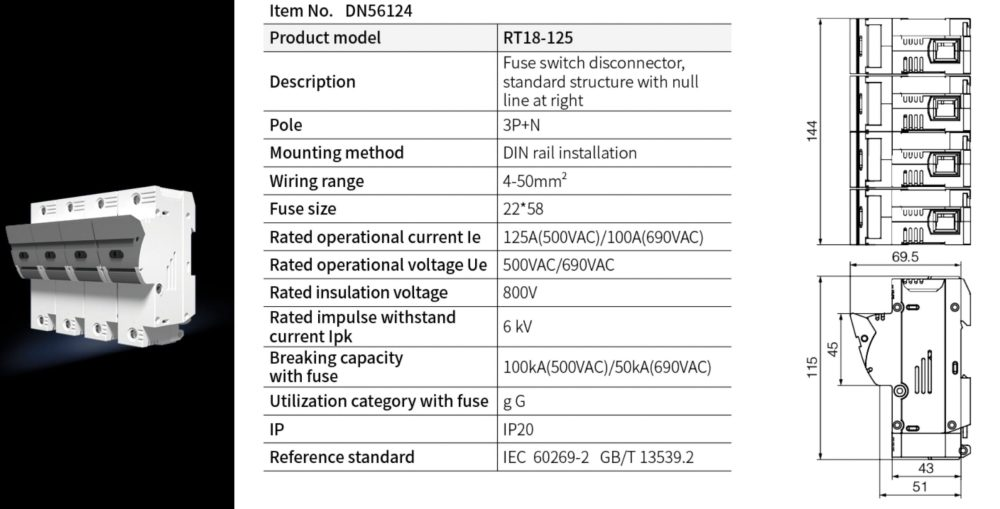Are fuse holders AC or DC?
din rail mount fuse holder can be used in both AC (alternating current) and DC (direct current) applications. The design and specifications of the fuse holder will determine its suitability for AC or DC circuits. When selecting a fuse holder, it’s important to consider the following factors:
1.Voltage Rating: Ensure that the voltage rating of the din rail mount fuse holder is suitable for your AC or DC application. The voltage rating should match or exceed the voltage of your electrical system to ensure proper insulation and safety.
2.Current Rating: Consider the current rating required for your circuit, both for AC and DC applications. Fuse holders are designed to handle specific current ranges, so select a holder that can safely accommodate the maximum current expected in your circuit, whether it’s AC or DC.
3.Construction and Design: Fuse holders for AC and DC applications may have slight design differences to account for the specific characteristics of each current type. For example, AC fuse holders may have additional considerations for handling the alternating current’s periodic voltage reversals. However, many fuse holders are designed to be compatible with both AC and DC currents.
4.Compliance with Standards: Ensure that the fuse holder complies with relevant safety and industry standards for both AC and DC applications.
Fuse Holder Types Look for certifications or markings that indicate compliance with standards such as UL (Underwriters Laboratories), CSA (Canadian Standards Association), or IEC (International Electrotechnical Commission) for the specific voltage and current type you are working with.
By selecting a fuse holder that meets the voltage and current requirements of your AC or DC circuit, you can ensure its suitability and proper functioning in your application.








